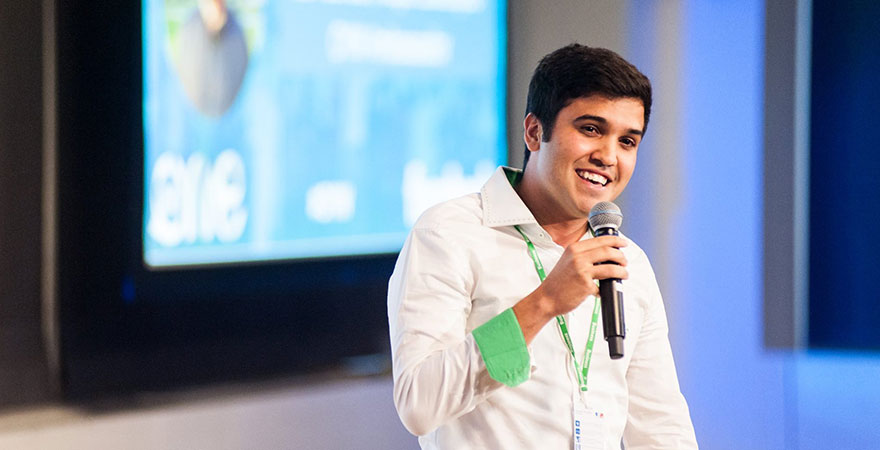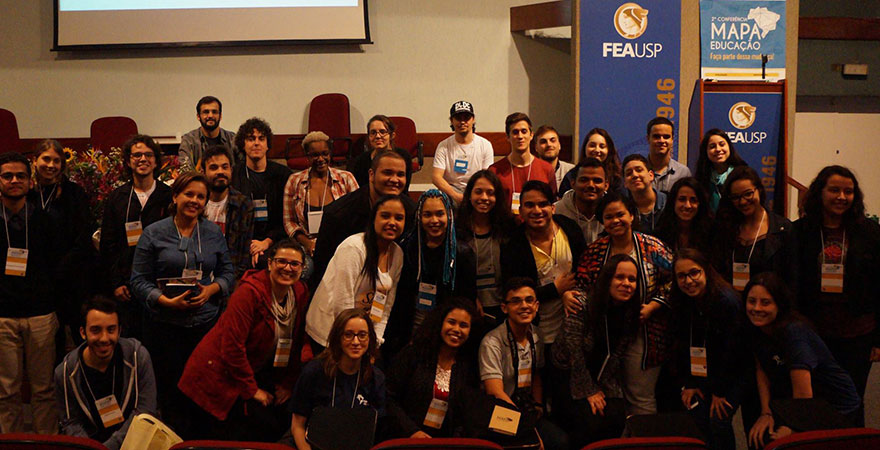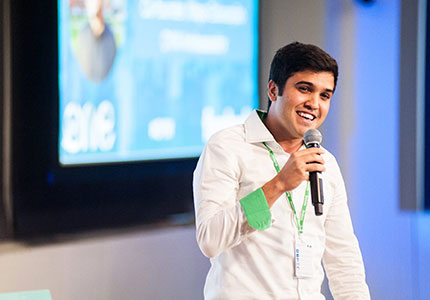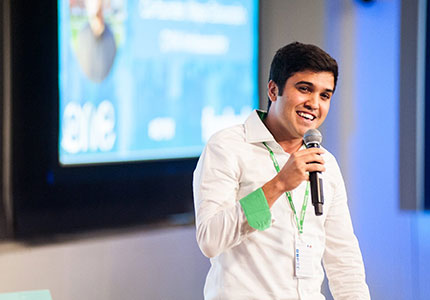Brazil’s President, Michel Temer, is being investigated over bribery allegations; his predecessor, Dilma Rousseff has been impeached and the President she succeeded, and just yesterday, Luiz Inácio Lula da Silva, had his prison sentence increased from nine to twelve years and his bid to run in the upcoming presidential election officially shut down.
Renan Ferreirinha Carneiro can barely contain his excitement over what 2018 holds in store for Brazil. “It's going to be a big year - Brazil is going to be a country at the centre of global attention,” he says.

The remarkable 24-year-old social entrepreneur, campaigner and One Young World (OYW) Ambassador has built not one but two national movements as part of his personal mission to use education to fight corruption and inequality in Brazilian society.
He believes that the country’s purge on alleged criminality in the highest places - known as “Operation Car Wash” - is a positive sign in a young democracy. “It shows Brazil’s institutions are strong and getting stronger.”
His newly-founded youth movement Acredito (“I Believe”) is already active in 11 Brazilian states and seeks to change the country’s political status quo by making the country’s Congress and regional assemblies representative of all classes of society. Ferreirinha and other Acredito activists may stand as candidates at future elections.
His other national movement, Mapa Educação (“Education Map”), aims to put education at the forefront of government policy and advises Brazil’s National Youth Council, which reports to the President. Mapa has grown to an organisation of 130 workers and volunteers. Ferreirinha co-founded both movements with his fellow Brazilian OYW Ambassador Tábata Amaral de Pontes and a few other young social entrepreneurs in Brazil.

Raised by his mother in the sprawling and deprived Rio de Janeiro suburb of São Gonçalo, Ferreirinha was a schoolboy when he first became aware of the marked inequalities in Brazil’s education system. His understanding of the paucity of opportunity suffered by many children grew when he worked with young people in Rio’s favelas. “These people have literally lost the birth lottery,” he says. “Statistically speaking, it's extremely unlikely they can have even basic living standards.”
Ferreirinha, whose mother was a school teacher, rates as “one in a thousand” his own chance of following an education path which took him from Rio’s suburbs to Harvard, where he recently graduated in economics and government. He is determined that other Brazilians will have better opportunities. “I am now part of the education elite but I should never forget where I came from.”
Schooling, he believes, offers the means to tackle the elitism and corruption that has dogged Brazil’s three decades as a young democracy. Mapa tracks the education pledges made by politicians during campaigning and holds them to account when they are elected to power.

When Brazilians go to the polls later this year they will be voting in what is set to be one of the nation’s tightest elections since it threw off military dictatorship in 1985.
Yesterday, in a momentous victory, Brazil’s appeal court unanimously upheld the corruption conviction against Lula, officially shutting down his bid to run in the upcoming presidential election this October. Brazil’s current president, four of its former presidents, and more than 100 federally elected politicians are either in jail or under investigation for corruption. Having been identified as one of the world’s future economic powerhouses a decade ago, its recent leadership has been worse than chaotic.
But Ferreirinha remains optimistic for Brazil’s future. “My country has a lot to show the world,” he says. “There is no longer the idea that because someone is rich they cannot go to jail.”
He and Amaral de Pontes established Mapa during the 2014 presidential election campaign and struck a chord. Within months, they and other education campaigners had persuaded new President Rousseff to adopt the slogan “Brazil: an education country.”
Now Acredito, which among its main goals aims to improve the representation of women and Afro-Brazilians in the country’s Congress, has tapped into a popular mood that seeks to replace cronyism with meritocracy alongside equality of opportunities, Ferreirinha claims. “The reality is that Brazilians are fed up of hoping and not being answered,” he says. “We have this saying ‘Brazilians never give up’, but we are kind of done with corruption.”
It remains to be seen whether Ferreirinha will stand for election this year himself. “That’s TBD (to be determined),” he says. “But winning at the elections is not the most important thing - what matter is the process and showing that things are done in the right way.”




